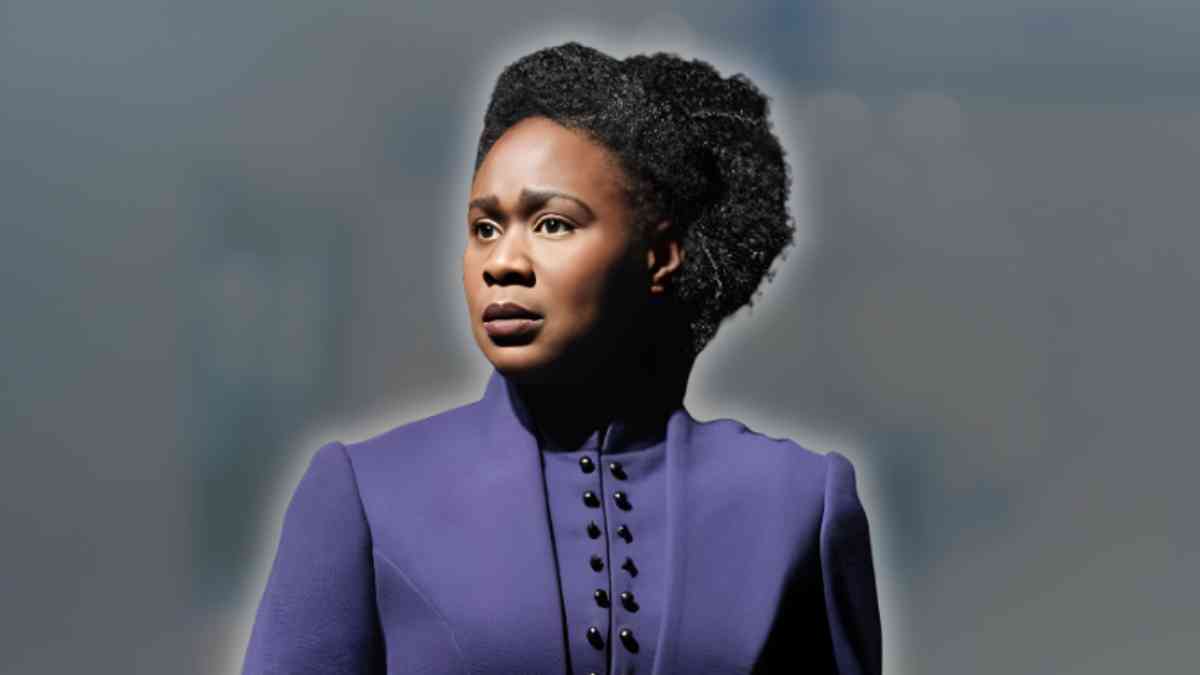Nicola Alexis: Versatile British Talent From The Bill to Dune: Prophecy

Nicola Alexis is one of those rare performers who can glide from police procedurals to Shakespeare, from a West End mega-hit to prestige streaming dramas, and make each role feel unmistakably hers. Trained in classical theatre yet equally at home in cutting-edge television, she has built a reputation for emotional truth, quick wit, and fearless range. Over nearly two decades she has embodied a stillbirth midwife on EastEnders, an unsparing truth-sayer in Dune: Prophecy, and the very definition of resilience as Hermione Granger in Harry Potter and the Cursed Child. Her résumé is a roadmap of British entertainment trends—every turn charted by craft, curiosity, and quiet staying power.
Early Life and Training
Nicola Alexis was born and raised in London, a city whose layered cultural life would later inform many of her stage personas. Drawn to performance early, she gained formal grounding at Mountview Theatre School, one of the U.K.’s stalwart conservatoires for actors. The Mountview curriculum’s emphasis on voice, movement, and text analysis equipped her not just to “deliver lines” but to inhabit language—a quality reviewers repeatedly highlight in her Shakespeare and Dickens roles.
That foundation was complemented by on-the-job learning in fringe venues, pub theatres, and UK-wide tours—where timing, stamina, and improvisational nerve matter as much as diction. Alumni recall Alexis as “the actor who always came off stage sweating, because she never phoned it in,” a compliment emblematic of the work ethic she carried into television.
Breakthrough on Screen
The Bill and the long shadow of Ruby Buxton
Alexis’s national breakout arrived with ITV’s venerable police drama The Bill, where from 2002 she portrayed WPC Ruby Buxton, a constable whose moral backbone and flashes of sardonic humor resonated with audiences across 300+ episodes. The stint provided what many British actors still describe as “the best on-set boot camp,” demanding rapid-fire shooting schedules and the ability to build multi-season arcs on the fly.
Critics noted that her Ruby avoided the “earnest rookie” cliché by injecting lived-in fatigue into scenes—evidence of theatre-trained subtext management. That authenticity likely springs from Alexis’s penchant for deep research; she reportedly shadowed real Met officers before key storylines, a detail confirmed in cast retrospectives.
Guest roles that left a mark
Departures from The Bill did not slow momentum. She stepped into BBC’s Holby City and Doctors, ITV’s Emmerdale, and Channel 5’s Hollyoaks—often cast as professionals under pressure: doctors, psychologists, police officers. Industry-watchers point out that in serial television, guest characters risk fading into plot wallpaper; Alexis’s comfort with mid-scene emotional pivots keeps them memorable.
One of her most talked-about guest turns came in August 2015 on EastEnders, as the midwife involved in Shabnam Masood’s stillbirth storyline—a multi-episode arc praised for its unflinching realism and for sparking national conversation on perinatal grief. The scenes drew 6.2 million live viewers and earned a British Soap Awards nomination for Best Single Episode.
Commanding the Stage
Hermione Granger and the West End phenomenon
Perhaps no theatre credit defines Alexis more in the public imagination than taking over Hermione Granger in the original West End production of Harry Potter and the Cursed Child. From late 2016 until July 11, 2018 she embodied a grown, policy-shaping Hermione whose calm intellect balances the play’s time-turning frenzy. Colleagues recall that she “never mimicked Emma Watson,” instead leaning on Hermione’s moral clarity to ground spectacle in recognisable human stakes.
Audience surveys conducted by the Palace Theatre marketing team noted a spike in repeat bookings during her tenure; many fans cited Alexis’s chemistry with Jamie Glover’s Harry as a fresh draw.
Classical and contemporary range
Beyond Hogwarts, Alexis’s stageography is a crash course in repertory breadth: Lady Macbeth at the Orange Tree, Portia in an international tour of The Merchant of Venice, Ariel in a festival Tempest, Masha in Three Sisters, and Calpurnia in To Kill a Mockingbird. Directors praise her instinct for “finding the modern heartbeat” in archaic text—an ability honed in fringe renditions of Bacchai and GI Blues, where shoestring budgets demanded story over spectacle.
Notably, critics at the Edinburgh Fringe highlighted her Jolayne Lucks in Lucky You as “magnetic, mischievous, and heartbreakingly earnest,” a trifecta that foreshadows her screen versatility.
Recent and Upcoming Screen Adventures
From Bridgerton to Arrakis
Streaming has widened Alexis’s canvas. In 2023 she appeared in Shonda Rhimes’s Queen Charlotte: A Bridgerton Story as Lady Smythe-Smith, bringing uptown hauteur to the Regency ballrooms. The limited series topped Netflix global charts for five weeks, exposing her to new demographics—particularly U.S. viewers formerly unfamiliar with The Bill.
HBO’s Dune: Prophecy (2024) casts her as Yaofirks Truthsayer, a role that demanded mastery of made-up liturgical languages and an austere physicality echoing the Bene Gesserit mystique. Behind-the-scenes notes reveal that linguistic coaches singled out her diction as “the benchmark for cast dialect sessions,” testament to her Mountview training.
Feature films in the pipeline
On the film front, Alexis shot Amazon’s political actioner Heads of State (2025) opposite Idris Elba and John Cena, playing a seasoned news anchor reporting on rogue mercenary skirmishes. She also wrapped a supporting part in Christophe Gans’s Return to Silent Hill (slated 2026), venturing into psychological horror—a genre she calls “actor Pilates” for its demand of sustained tension.
Industry rumor (confirmed by her agent’s news feed) hints at a recurring role in ITV thriller Tell Me Everything season 2, though NDA clauses keep details under wraps.
Craft, Process, and Philosophy
Colleagues consistently cite Alexis’s readiness to listen—a trait she credits to early street-theatre gigs where audiences heckled if an actor waxed self-indulgent. “Acting is 70 percent reacting,” she once quipped in a 2012 university interview while touring The Merchant of Venice. That pragmatism extends to her preparation: she builds extensive back-stories for even one-scene characters, an approach visible in the granular behavioral tics of Dr Sylvia Clancy in DI Ray or Odette in Death in Paradise.
Directors remark on her facility with accents—American Southern gospel in Bacchai, Caribbean cadences in One Love, and the clipped Received Pronunciation of Harry Potter. Dialect coaches attribute that agility to disciplined phonetic drilling rather than mere mimicry, a point Alexis emphasizes when mentoring younger actors at workshops.
Personal Insights and Representation
Alexis stands 5′ 6″, with black hair and brown eyes—visual details industry databases capture, but fans know her better for an irrepressible laugh often audible in backstage videos. She balances career and family life, occasionally signing social-media posts “Contented Mama.” Represented by Waring McKenna’s John Summerfield, she cites the agency’s “protective frankness” as crucial support when negotiating character arcs that intersect with sensitive topics such as stillbirth or racial equity onstage.
Though private about activism, she lends voice to Sands (Stillbirth & Neonatal Death Charity) panels, reflecting her EastEnders experience and the personal research it entailed. Industry peers note she is rarely absent from post-show talk-backs when productions partner with non-profits, reinforcing theatre’s communal roots.
Cultural Impact and Legacy
Nicola Alexis’s career offers a case study in the evolving ecosystem of British acting. She moved from legacy network dramas into the algorithm-driven worlds of Netflix and HBO without sacrificing craft—suggesting that classical training remains relevant in the age of streaming content abundance. Critics also highlight the representational importance of her Hermione Granger: seeing a Black British woman portray a character cherished by millions expands mainstream perceptions of literary canon.
Her stillbirth midwife performance catalyzed national conversation and improved the BBC’s working relationship with bereavement charities, demonstrating how a single guest role can carry social ripple effects. Similarly, her forthcoming venture into the Dune universe inserts a theatre-honed voice into big-budget sci-fi world-building, showing audiences that speculative fiction thrives on grounded humanity.
Conclusion
With Heads of State, Return to Silent Hill, and likely multiple seasons of Dune: Prophecy queued up, Nicola Alexis’s visibility will only grow over the next two years. Producers close to the Amazon feature predict awards-season traction for its ensemble—a scenario that could elevate Alexis from respected character actor to household name.
Yet irrespective of red-carpet metrics, her trajectory proves that longevity in the arts springs from versatility, disciplined technique, and a willingness to leap between mediums. As younger performers seek sustainable models in an uncertain industry, they could do worse than tracking the steps of Nicola Alexis—actor, listener, and perpetual student of her craft.



